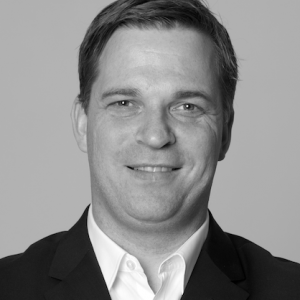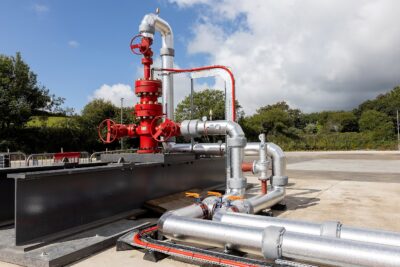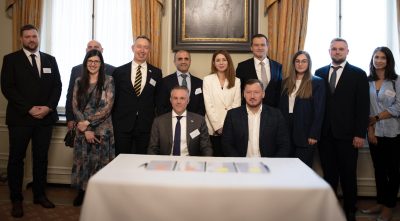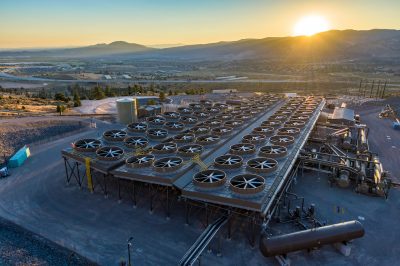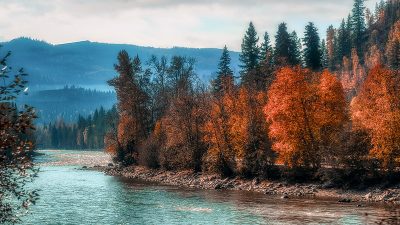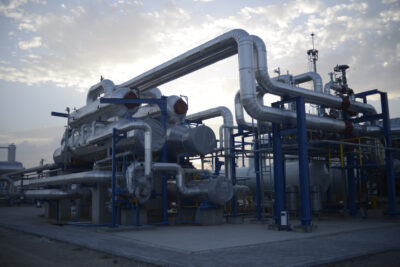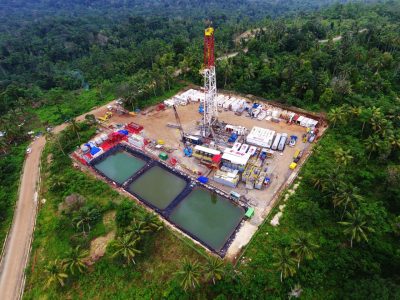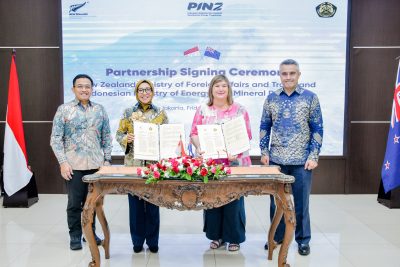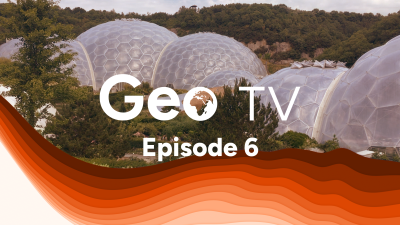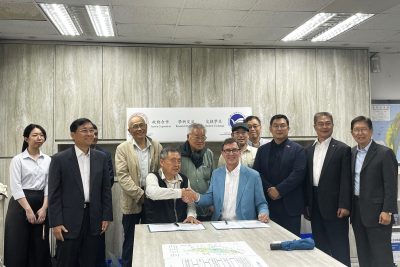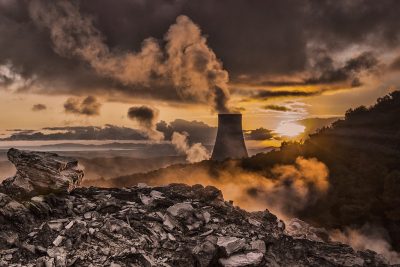WING Interview with Helen Robinson, University of Glasgow, UK
In this interview with WING Ambassador Helen Robinson, a PhD Researcher, lab and field demonstrator, and the Rift Valley Expedition Team Leader at the University of Glasgow, United Kingdom on Vision, Determination, and Making a Difference as a woman in the geothermal energy sector.
Continuing our interview series with ambassadors of Women in Geothermal (WING), we spoke with Helen Robinson from Glasgow University in the UK on Vision, Determination, and Making a Difference.
Helen Robinson is a PhD Researcher, a lab and field demonstrator, and the Rift Valley Expedition Team Leader at the University of Glasgow, United Kingdom. From an early age, she was fascinated by natural disasters and the San Andreas earthquakes and eruption of Mount Saint Helens caught her attention. After completing high school, she worked a range of unrelated jobs, not entering a degree program until she was 30. Helen found herself doing a short piece of coursework on renewable energy and geothermal in a University pre-requisite module. She fell in love with field work during her undergraduate and Masters studies, and has done research in Spain, Italy, Cyprus, Norway, Australia, Kenya, and Ethiopia. At Glasgow, in addition to her PhD Helen is involved in teaching undergraduates in the lab and the field, module development, and outreach activities. In 2015 she was accepted as a Fellow of the Geological Society, London, and has recently taken on the role of WinG UK ambassador.
What did you want to be when you grew up?
A multitude of things, though the ones that stick in my mind are geologist (of course!), botanist, criminologist, vet.
What motivates you?
Knowing that I can and will make a difference.
What do you consider your greatest achievement?
Probably this right now: my PhD and everything that has come with it, the experiences, the people I’ve met; people contact me from all over the place for advice on how to get in to geothermal, the encouragement women get when they realise that actually they can do whatever they want, requests for exploration assistance, etc. And again, my work is slowly making a difference to the developing nations of East Africa.
What do you believe has been the key to your success?
Hard work, determination, and I don’t take no for an answer. If there is a way to achieve something, I will find it.
What do you believe are the personalities of great leaders?
The ability to support those around you, realising you cannot please everyone, you can’t always be everyone’s friend, patience, compassion, determination, quick thinking, the ability to remain calm in an emergency, organised, to have the ability to communicate in a way that is audience appropriate, to listen.
What do you think is the biggest obstacle for women in the geothermal sector?
This is actually quite a difficult question. I think the obstacles are likely to vary depending on the country you work in and your role within the sector. Overall I imagine that visibility, or lack-there-of, is an obstacle. Walking in to a room where you are the only woman or more appropriately on to an active well pad for example, can for many women be quite an intimidating experience, even when all the men are really friendly and supportive. It takes a bit of time to get used to and some women may find they are simply not comfortable in an all-male/male dominated environment. This of course generates that ‘vicious circle’ of how are we going to encourage more women to work in a sector where women are lacking, when all they might need is the presence/visibility of more women?
Why do you think it is important for women in geothermal to join forces?
As a group, all with similar drive and direction, our voices are more likely to be heard. We are more likely to get the roles we really want, with the pay we really deserve and to be taken seriously in our roles. And when things don’t go quite to plan, we have a great support network.
What do you wish you had known at the start of your career?
How incredibly hard it can be sometimes. It would not have put me off, but I would have been better prepared for the let downs and the ’no’s’. But the ‘no’s’ have just made me dig my heels in a little more, made me more determined and driven. The no’s have made me stronger, taught me a lot.
What are your thoughts on vision, determination, and making a difference in your career?
You can be a complete techy, or love volcanoes, or be fascinated by natural disasters and still make a difference to someone’s life. Don’t be afraid to ask – nothing ventured, nothing gained. As WinG would say “Go for the no”. Think outside of the box. Start developing your skill set as soon as possible – work experience, voluntary work at a museum, internships, ask to help a lecturer on a project during the summer.
I would also say that some people do not feel comfortable attending conferences, but they are a great way to meet people, discuss ideas and network. I’m almost certain I would not be where I am right now if I hadn’t plucked up the courage to attend (and present) at a conference (on my own). So take the time to attend them, present if you can and go to workshops, field trips and industry expo’s – build your own network, take every opportunity to learn from lots of people and get feedback where possible. Be strong! Be brave!
Helen may be contacted regarding WinG and her activities in the United Kingdom at h.robinson.2@research.gla.ac.uk
We would like to thank Laura Garchar a WING member in the U.S. and Staff Geoscientist with Geologica Geothermal Group Inc. who helped make this interview possible.







